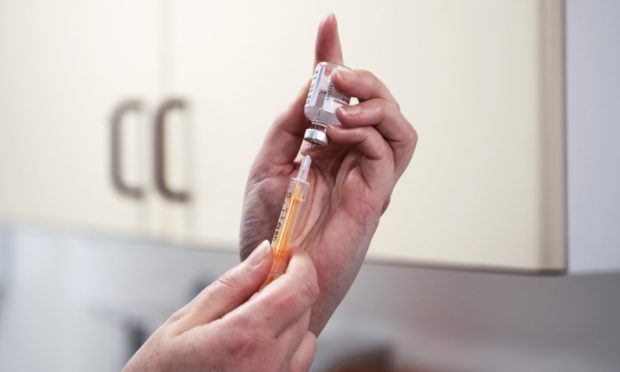Scotland’s chief medical officer has described the latest tightening of Covid restrictions as a “proportionate response” to the threat of the new strain.
From Saturday, Scots will not be able to enter premises to collect takeaways, and click and collect services will be reduced to essential items only.
Employers will be required by law to facilitate working from home if possible and guidance around working inside private homes will also be put into law.
CMO Gregor Smith told the BBC’s Good Morning Scotland show the new measures were being introduced to “try to prevent further transmission of the virus in our communities”.
He said the new variant had become “by far” the predominant version in Scotland due to its enhanced transmissibility – with Ms Sturgeon yesterday saying it accounted for 60% of new cases.
Dr Smith said: “We think that this package of measures which we have put in place and will come into effect on Saturday is a proportionate response to the degree of risk.
“People have been acting magnificently over the 10 or 11 months, we’ve seen society come together to try and restrict the ability of this virus to spread to others.
“What I’m looking for from people is that little bit of last effort while this vaccination programme really kicks in, to make sure we are restricting the ability of this virus to cause further severe disease and death across our society.
“This is probably the most proportionate way we can do that without damaging some of the other things we take for granted in the way we live our lives.”
Vaccine immunity ‘lasts at least five months’
Dr Smith also spoke about a study released recently by Public Health England, which suggests those who have previously been infected with Covid-19 will be immune for at least five months.
He said “there’s no reason to suspect” that immunity provided by the vaccines would not last as long as that.
The results, which come from the health body’s Siren study, found that antibodies from the initial infection give 83% immunity from reinfection for that period of time.
Dr Smith said: “That is very encouraging, and that’s to protect against symptomatic infection.
“What we will continue to do is track those people over further time, up to 12 months, to see exactly how long that immunity persists across that time, but these initial results are certainly very encouraging that we would have an enduring natural immunity.
“There’s no reason to suspect that the immunity from the vaccine would last any less than that.
“However, further trials once people have been vaccinated will be necessary to ensure that’s the case.
